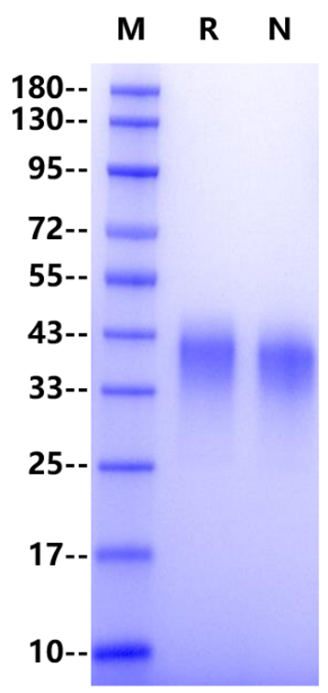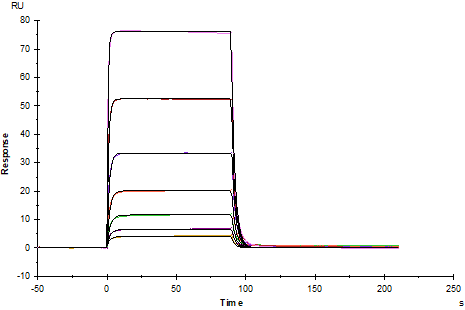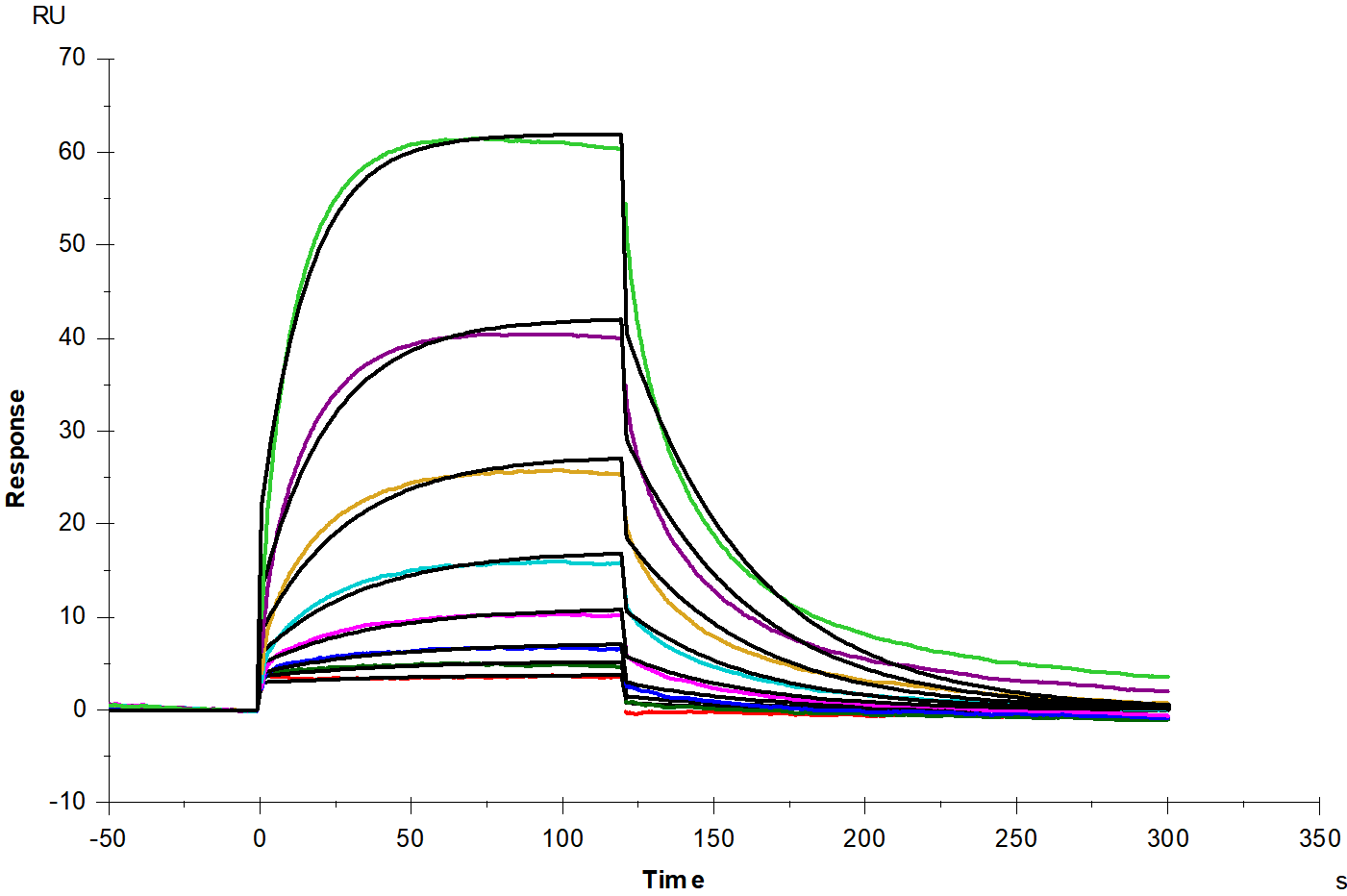Leu25-Gln167, with C-terminal 8* His LEVPNGPWRSLTFYPAWLTVSEGANATFTCSLSNWSEDLMLNWNRLSPSNQTEKQAAFCNGLSQPVQDARFQIIQLPNRHDFHMNILDTRRNDSGIYLCGAISLHPKAKIEESPGAELVVTERILETSTRYPSPSPKPEGRFQGGGSHHHHHHHH
1、James E S. et al. (2005) PDCD1: a tissue-specific susceptibility locus for inherited inflammatory disorders. Genes Immun. 6(5): 430-437.
2、Okazaki T. et al. (2007) PD-1 and PD-1 ligands: from discovery to clinical application. Int Immunol. 19(7): 813-824.
3、del Rio M L. et al. (2008) PD-1/PD-L1, PD-1/PD-L2, and other co-inhibitory signaling pathways in transplantation. Transpl Int. 21(11): 1015-1028.
4、Riley J L. (2009) PD-1 signaling in primary T cells. Immunol Rev. 229(1): 114-125.
Programmed cell death protein 1, also known as PD-1 and CD279 (cluster of differentiation 279) or PDCD1, is a protein that in humans is encoded by the PDCD1 gene. Mature Cynomolgus monkey PD-1 consists of a 148 amino acid (aa) extracellular region (ECD) with one immunoglobulin-like V-type domain, a 24 aa transmembrane domain, and a 95 aa cytoplasmic region. The Cynomolgus monkey PD-1 ECD shares 95% aa sequence identity with the human PD-1 ECD. The cytoplasmic tail contains two tyrosine residues that form the immunoreceptor tyrosine-based inhibitory motif (ITIM) and immunoreceptor tyrosine-based switch motif (ITSM) that are important for mediating PD-1 signaling. PD‑1 is expressed on activated T cells, B cells, monocytes, and dendritic cells while. PD-L1 expression is constitutive on the same cells and also on nonhematopoietic cells such as lung endothelial cells and hepatocytes. Ligation of PD-L1 with PD-1 induces co-inhibitory signals on T cells promoting their apoptosis, anergy, and functional exhaustion.


Immobilized PD-1 His Tag, Mouse (Cat. No. UA010292) at 2.0μg/mL (100μL/well) can bind PD-L1/B7-H1 Fc Chimera, Mouse (Cat. No. UA010259) with EC50 of 2.18-3.03μg/ml.

Protein A Chip captured PD-L1/B7-H1 Fc Chimera, Mouse (Cat. No. UA010259), can bind PD-1 His Tag, Mouse (Cat. No. UA010292) with an affinity constant of 0.42μM as determined in SPR assay.

Anti-His antibody Immobilized on CM5 Chip captured PD-1 His Tag, Mouse (Cat. No. UA010292), can bind PD-L2/B7-DC Fc Chimera, Mouse (Cat. No. UA010337) with an affinity constant of 0.31 μM as determined in SPR assay.